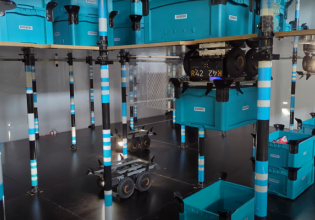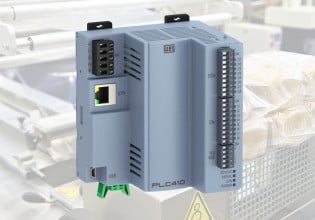Mitsubishi Electric Pushes New Initiatives Toward Eliminating Black Boxes in AI Controls
Mitsubishi Electric seeks to eliminate the black-box approach to AI controls—and takes steps toward establishing a more human-centric AI ethics policy.
Mitsubishi Electric, a manufacturer of electronic and electrical technology, and RIKEN, the National Institute of Physical and Chemical Research, have jointly announced their development of innovative AI (artificial intelligence) technology that clarifies the rationale behind AI-based control systems.
Black Box AI Controls
In the conventional AI approach to controls, output from various sensors is fed into an AI system that essentially acts as a black box. The AI system then combines the input with past learning results to infer control signal outputs.

How black boxes work in AI. Image used courtesy of Krauss
While this approach works, there are issues with it. For example, no rationale is provided for the control decisions made. Not having the basis of decisions clearly stated makes it difficult for users to ascertain the AI system’s accuracy and have the necessary confidence to implement AI controls into key infrastructure systems. This inability to fully understand how certain decisions are made also makes it extremely difficult to troubleshoot issues.
Mitsubishi’s Approach to AI Controls
Mitsubishi Maisart (Mitsubishi Electric's AI creates the State-of-the-ART) technology lineup now includes a new approach to AI controls with sensor value prediction, a simulator, and a scheduler to replace the black box.

Comparison between the conventional AI control approach and the Maisart technology approach. Image used courtesy of Mitsubishi Electric
Mitsubishi explains this new approach using AI control of a room air conditioning system as a simplified example. The AI system will quantify key characteristics of the operating environment—namely the insulation and room size—not measured by sensors.
Using past working data, the system estimates how many people are likely to be in the room. From that, it will predict how many people will enter and exit the room and the room's ambient heat levels in the future. Note again that sensors do not measure these values.
These predictions:
- Allow the AI system to simulate how the room temperature changes when the air conditioning system is running, and
- Can derive an optimized control plan.
In addition, users can understand the rationale behind the control system by studying the control plan and the simulation results upon which it is based.
Mitsubishi Electric AI Ethics Policy
Also announced is the development of the Mitsubishi Electric Group AI Ethics Policy, which focuses on human-centric considerations for security, privacy, non-bias, and safety in addition to convenience. This policy is being developed in response to several movements worldwide seeking to restrict AI because of its high risk.

An overview of Mistubishi Electric’s new AI ethics policy. Image used courtesy of Mitsubishi Electric
Among key points in the AI ethics policy is a commitment to more rigorous testing, enhanced security measures, and better transparency. This new AI ethics policy sets a good example for similar businesses to ensure that their technology is more human-centric and in accordance with developing international policies.
Between the AI ethics policy and Mitsubishi Electric Maisart technology’s more transparent approach to AI decision-making rationales, the future of AI looks promising, and these concepts should lower some of the existing hurdles to AI adoption.






